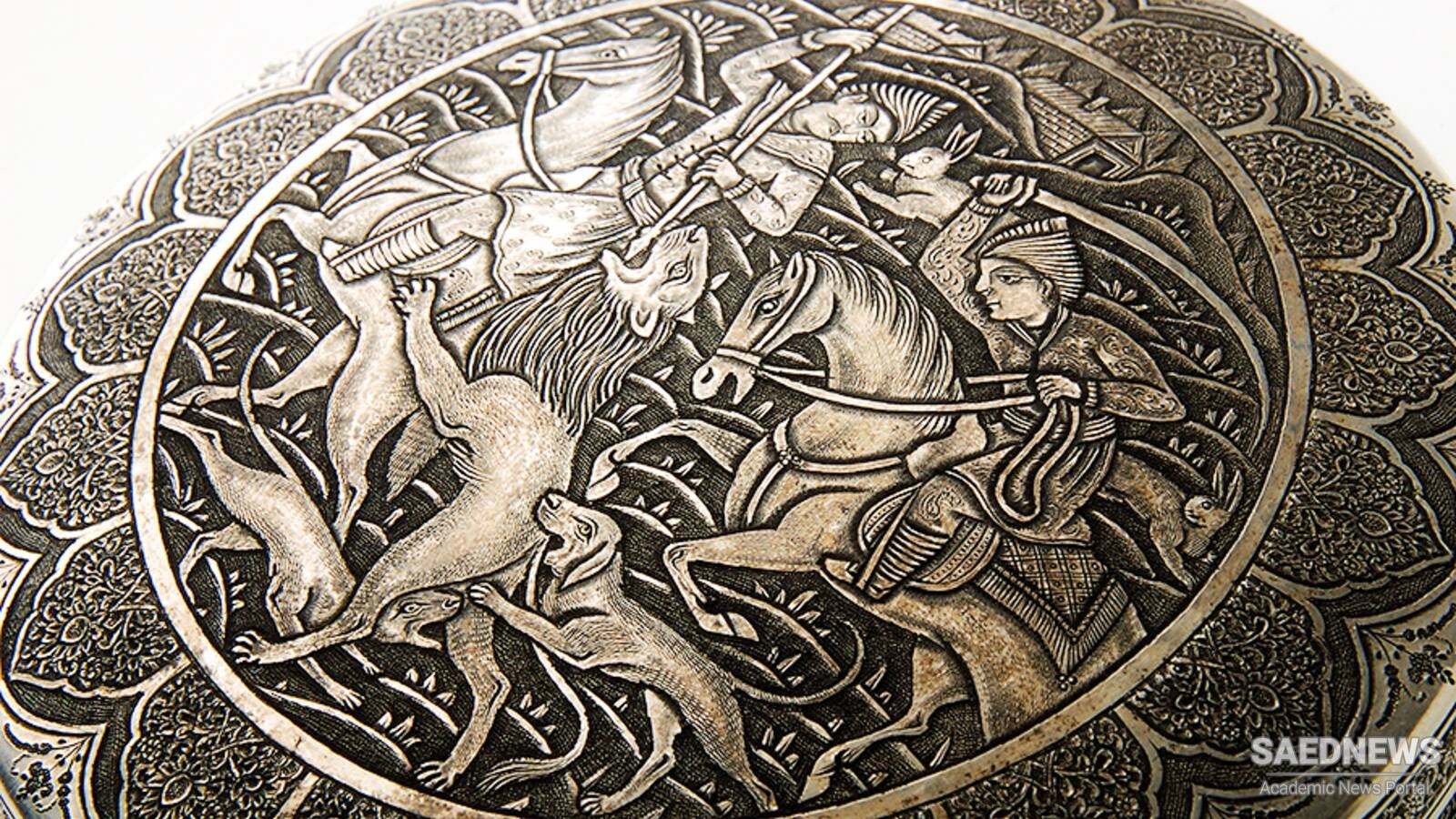This art has first been seen in the forms of carving on mountains and on building stones of royal palaces and historical monuments and even in the era of cavemen; and, afterwards it was developed to engraving and, finally, toreutics.
In other words, toreutics generally refers to decorating and engraving beautiful and exquisite pictures and patterns on the main surface of the metal objects made of gold, silver, copper, brass and steel through hammering or engraving with a burin.
Among the above-mentioned metals, copper is more popular in this artistic metalworking due to its softness and flexibility. The art of toreutics or engraving on metals with burins has drawn the artists’ attention mainly due to considerable lifespan and persistence of the products comparing to other objects or materials.
The contemporary artists or craftsmen in this field first coat the inner or below part of the concerned metal dish or tray, usually made of silver or gold, with a tar and plaster solution so as to decrease the sounds of hammers or burins and at the same time diminish the potential risk of dish penetrations.
Then, they draw the pattern on the dish and after choosing the proper burin they place it on the pattern and start to hammer the end of burin to form the desired grooves and patters on the dish with changing the intensity of hammer hits.
Motifs and symbols used in the patterns of toreutics have always varied based on ideological and cultural changes throughout the various historic and cultural periods, and have been influenced by the social conditions and have had their own particular historical evolution.
Different styles in the art of toreutics include relief, mid-relief, engraving, and lattice work. Moreover, in another perspective, there are two major styles in Iranian toreutics: Isfahan Style and Tabriz Style. In Tabriz Style, motion and pressure of the wrist is used for engraving, and in Isfahan Style it is done with hammering hits. Therefore, burin of Tabriz is flat and shallow while the burin of Isfahan is deeper.


 Chador: Mandatory Hijab in Persia
Chador: Mandatory Hijab in Persia














































